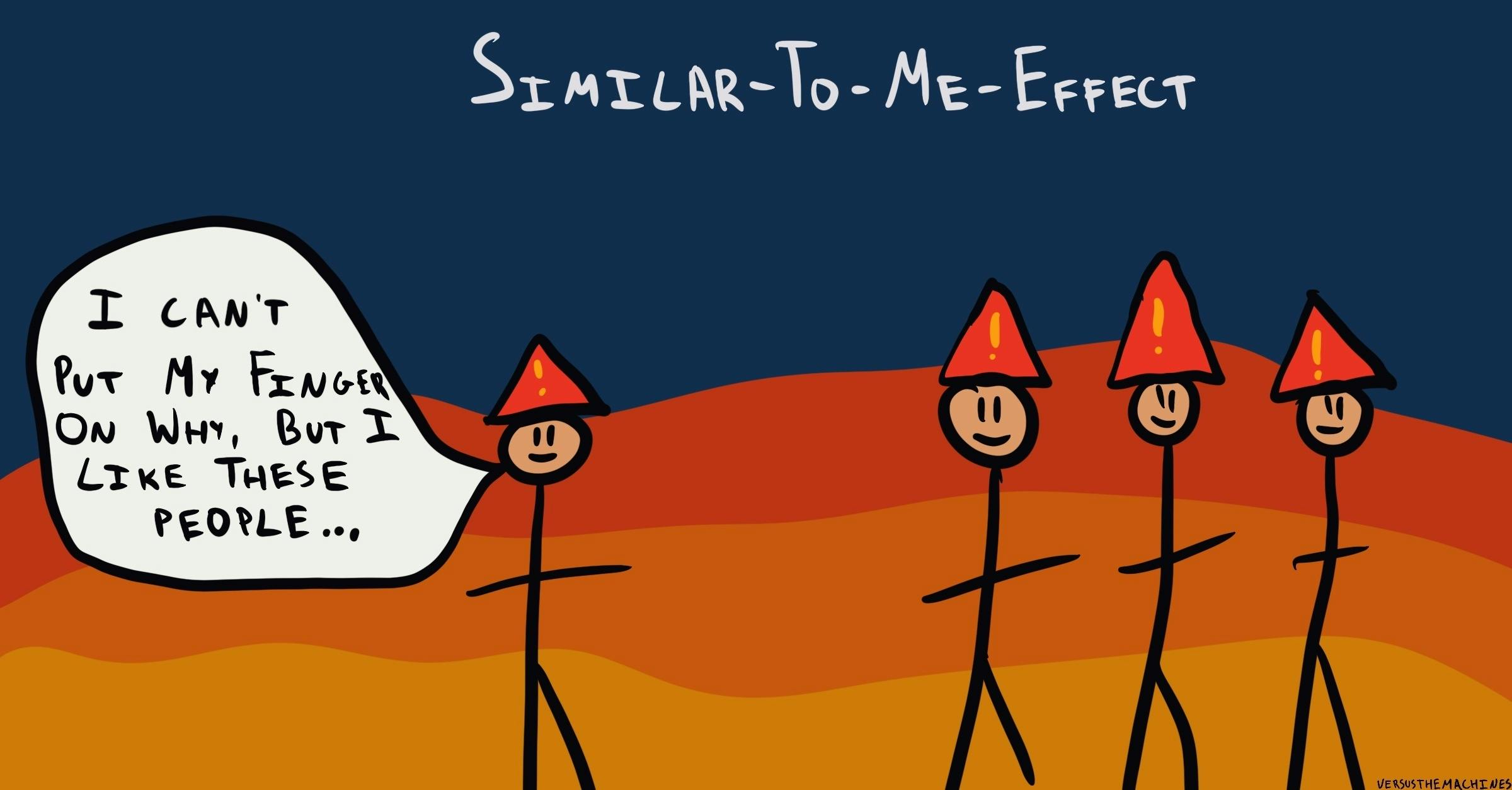The Similar-To-Me Effect
What is the Similar-To-Me Effect?
The similar-to-me effect is a cognitive bias that describes our inclination to prefer those similar to ourselves in terms of characteristics, beliefs, or behaviors.
The Basic Idea
Picture your group of friends. They are likely the same age, same gender, and may even come from the same background as you. Even if we pride ourselves on being inclusive and celebrating diversity, we still tend to surround ourselves with people similar to ourselves. While it is normal to get along with people who have similar experiences, like your basketball teammate or a fellow college alumnus, favoring people similar to you becomes a problem when it leads to discrimination.
The similar-to-me effect is a cognitive bias that explains our tendency to prefer people that look and think like us. We have an affinity towards all things familiar to us, which is why the similar-to-me effect is also known as the affinity bias. While it might seem harmless in principle to associate ourselves with familiar people, the similar-to-me effect can lead to unjust consequences when applied to hiring practices, workplace promotions, and tolerance towards otherness.

For a clever man, different cultures, different lives, different attitudes, different dreams, different of everything are a good teacher! [However, most people] take the things [they] already know from somebody or something like you.
– Turkish writer Mehmet Murat Ildan1
About the Authors
Dan Pilat
Dan is a Co-Founder and Managing Director at The Decision Lab. He is a bestselling author of Intention - a book he wrote with Wiley on the mindful application of behavioral science in organizations. Dan has a background in organizational decision making, with a BComm in Decision & Information Systems from McGill University. He has worked on enterprise-level behavioral architecture at TD Securities and BMO Capital Markets, where he advised management on the implementation of systems processing billions of dollars per week. Driven by an appetite for the latest in technology, Dan created a course on business intelligence and lectured at McGill University, and has applied behavioral science to topics such as augmented and virtual reality.
Dr. Sekoul Krastev
Dr. Sekoul Krastev is a decision scientist and Co-Founder of The Decision Lab, one of the world's leading behavioral science consultancies. His team works with large organizations—Fortune 500 companies, governments, foundations and supernationals—to apply behavioral science and decision theory for social good. He holds a PhD in neuroscience from McGill University and is currently a visiting scholar at NYU. His work has been featured in academic journals as well as in The New York Times, Forbes, and Bloomberg. He is also the author of Intention (Wiley, 2024), a bestselling book on the science of human agency. Before founding The Decision Lab, he worked at the Boston Consulting Group and Google.




















